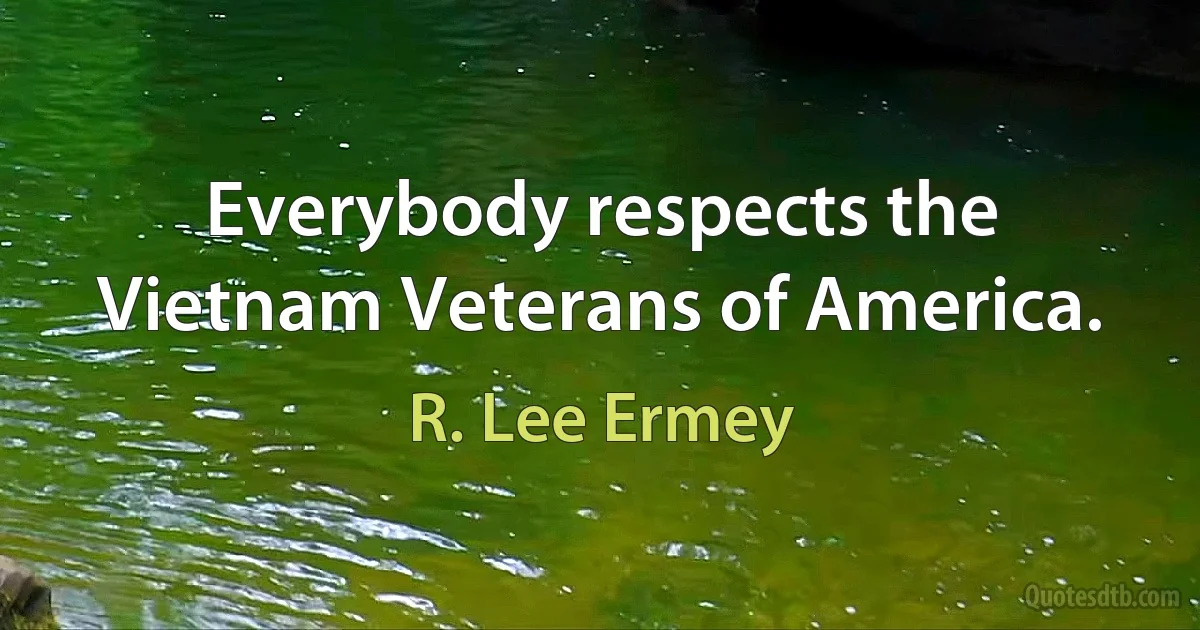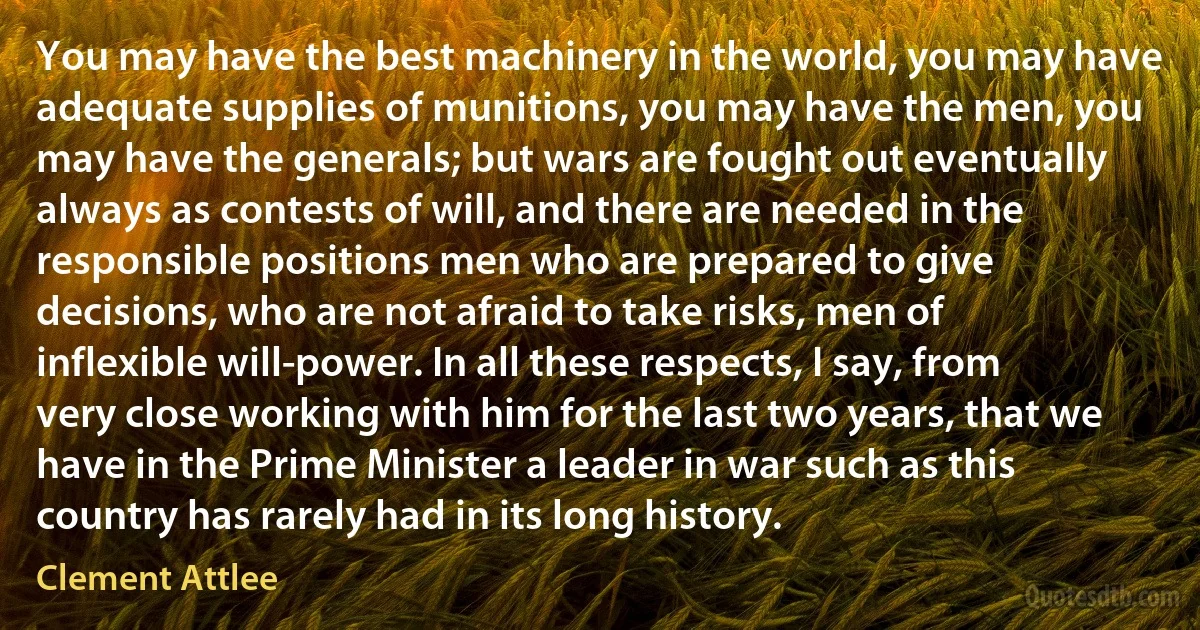Respects Quotes - page 3
These Central Asian republics have a special interest for us because of our age-old contact with Middle Asia. They are even more fascinating because of the remarkable progress they have made during the past few years. Under the Tsars they were very backward and superstitious countries with hardly any education and their women mostly behind the veil. Today they are ahead of India in many respects.

Jawaharlal Nehru
God thus includes the world; he is, in fact, the totality of world parts, which are indifferently causes and effects. Now AR [absolute perfection in some respects, relative perfection in all others] is equally far from either of these doctrines; thanks to its two-aspect view of God, it is able consistently to embrace all that is positive in either deism or pandeism. AR means that God is, in one aspect of himself, the integral totality of all ordinary causes and effects, but that in another aspect, his essence (which is A), he is conceivable in abstraction from any one or any group of particular, contingent beings (though not from the requirement and the power always to provide himself with some particulars or other, sufficient to constitute in their integrated totality the R aspect of himself at the given moment).

Charles Hartshorne
These distinctions make sense only when AR [absolute perfection in some respects, relative perfection in all others] is assumed (hence Spinoza's failure, who assumed mere A). Just as AR is the whole positive content of perfection, so CW, or the conception of the Creator-and-the-Whole-of-what-he-has-created as constituting one life, the super-whole which in its everlasting essence is uncreated (and does not necessitate just the parts which the whole has) but in its de facto concreteness is created – this panentheistic doctrine contains all of deism and pandeism except their arbitrary negations. Thus ARCW, or absolute-relative panentheism, is the one doctrine that really states the whole of what all theists, if not all atheists as well, are implicitly talking about.

Charles Hartshorne
The best foreign account of India that this age produced was written by Abu Rlhan, better known as Alberuni, a contemporary of Sultan Mahmud of Ghazni. While the ruthless conqueror was harrying India by fire and sword, destroying and plundering its cities and temples, the great Arabic scholar engaged himself in studying the culture and civilization of the country. He learned Sanskrit and studied its different branches of literature. The bulky volume which he wrote is in many respects the most rational and comprehensive account of India ever written by a foreigner until modern times. He is singularly free from religious enthusiasm, bordering on fanaticism, and the racial superiority-complex which mark the Muslim writings of the age. He patiently laboured to acquire knowledge of Indian society and culture in a laudabile spirit of quest for truth, and brought to his task a liberal and rational mind enriched by profound knowledge, remarkable for his age.

Al-Biruni
This book, admirable in so many respects, power in its break and style, is even more intimidating for me in that, having formely had the good fortune to study under Michel Foucault, I retain the consciousness of an admiring and grateful disciple. Now, the disciple's consciousness, when he starts, I would not say to dispute, but to engage in dialogue with the master or, better, to articulate the interminable and silent dialogue which made him into a disciple-this disciple's consciousness is an unhappy consciousness.

Jacques Derrida
The Grecian are youthful and erring and fallen gods, with the vices of men, but in many important respects essentially of the divine race. In my Pantheon, Pan still reigns in his pristine glory, with his ruddy face, his flowing beard, and his shaggy body, his pipe and his crook, his nymph Echo, and his chosen daughter Iambe; for the great god Pan is not dead, as was rumored. No god ever dies. Perhaps of all the gods of New England and of ancient Greece, I am most constant at his shrine.

Henry David Thoreau
It is not the business of socialists to help the younger and stronger robbers. Socialists must take advantage of the struggle between the robbers to overthrow all of them. To be able to do this, socialists must first of all tell the people the truth, namely, that this war is, in three respects, a war between slave-holders with the aim of consolidating slavery.

Vladimir Lenin
Inanimate objects are sometimes parties in litigation. A ship has a legal personality, a fiction found useful for maritime purposes. The corporation sole – a creature of ecclesiastical law – is an acceptable adversary and large fortunes ride on its cases.... So it should be as respects valleys, alpine meadows, rivers, lakes, estuaries, beaches, ridges, groves of trees, swampland, or even air that feels the destructive pressures of modern technology and modern life. The river, for example, is the living symbol of all the life it sustains or nourishes – fish, aquatic insects, water ouzels, otter, fisher, deer, elk, bear, and all other animals, including man, who are dependent on it or who enjoy it for its sight, its sound, or its life. The river as plaintiff speaks for the ecological unit of life that is part of it.

William O. Douglas
Alas! such is the miseducation of these days, it is only among those that are called the uneducated classes - those educated by experience - that you can look for a Man. Even among these, such a sight is growing daily rarer. My father, in several respects, has not, that I can think of, left his fellow. Perhaps among Scottish peasants what Samuel Johnson was among English authors. I have a sacred pride in my peasant father, and would not exchange him, even now, for any king known to me. Gold and the guinea stamp - the Man and the clothes of the man. Let me thank God for that greatest of blessings, and strive to live worthily of it.

Thomas Carlyle
Of America it would ill beseem any Englishman, and me perhaps as little as another, to speak unkindly, to speak unpatriotically, if any of us even felt so. Sure enough, America is a great, and in many respects a blessed and hopeful phenomenon. Sure enough, these hardy millions of Anglosaxon men prove themselves worthy of their genealogy... But as to a Model Republic, or a model anything, the wise among themselves know too well that there is nothing to be said... Their Constitution, such as it may be, was made here, not there... Cease to brag to me of America, and its model institutions and constitutions.

Thomas Carlyle
Mrs. Bush: I don't think there is anything wrong with singing it in Spanish. The point is it's the United States national anthem and what people want is it to be sung in a way that respects the United States and our culture. At the same time, we are a nation of immigrants. We are a nation of many, many languages, because immigrants come and bring their languages.
Larry King: Is that an issue you disagree with your husband? He says it should be sung in English.
Mrs. Bush: I think it should be sung in English, of course.

Laura Welch Bush
Undue cultivation of the inward or Dynamical province leads to idle, visionary, impracticable courses, and, especially in rude eras, to Superstition and Fanaticism, with their long train of baleful and well-known evils. Undue cultivation of the outward, again, though less immediately prejudicial, and even for the time productive of many palpable benefits, must, in the long-run, by destroying Moral Force, which is the parent of all other Force, prove not less certainly, and perhaps still more hopelessly, pernicious. This, we take it, is the grand characteristic of our age. By our skill in Mechanism, it has come to pass, that in the management of external things we excel all other ages; while in whatever respects the pure moral nature, in true dignity of soul and character, we are perhaps inferior to most civilised ages.

Thomas Carlyle



